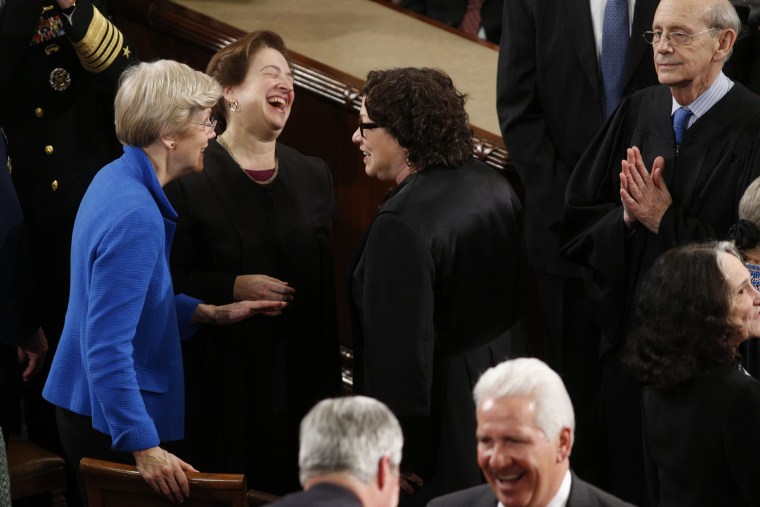Standing on the steps of the Supreme Court, Scott Lively, president of Abiding Truth Ministries, told reporters he's filing a motion with the Supreme Court calling for the recusal of Justices Ruth Bader Ginsburg and Elena Kagan. [Lively] and more than a dozen leaders of anti-gay-marriage groups stood behind a wall of empty cardboard filing boxes stacked on the steps of the court on Monday morning. The boxes -- 60 in all -- were there to "symbolically" represent 300,000 restraining orders that Faith2Action President Janet Porter said will be delivered to the Supreme Court and to Congress to keep the justices from ruling on gay marriage.
[O'Reilly] claimed that only the "nutty left" wanted Scalia to recuse himself in Hamdan v. Rumsfeld, a case brought by a Guantánamo Bay prisoner who argued that his detention after 9/11 violated his rights under military and international law. On March 8, 2006, just weeks before the Court heard oral arguments in Hamdan, Scalia gave a speech at the University of Freiberg in Switzerland, where he asserted that people who had been designated as enemy combatants -- like the prisoner in the Hamdan case -- could not enforce their rights in federal court. According to a report from Michael Isikoff who broke the story for Newsweek, Scalia stated that "War is war, and it has never been the case that when you captured a combatant you have to give them a jury trial in your civil courts ... Give me a break." In response to an audience member who asked whether detainees had rights under the Geneva Convention -- one of the exact issues raised in Hamdan -- Scalia replied, "I'm not about to give this man who was captured in a war a full jury trial. I mean it's crazy." As Isikoff explained, "[t]he comments provoked 'quite an uproar'" because the case hadn't been heard yet, but Scalia had "already spoken his mind about some of the issues in the matter." Quoting Stephen Gillers, a professor of law and legal ethics expert, Isikoff added: "As these things mount, a legitimate question could be asked about whether he is compromising the credibility of the court."
